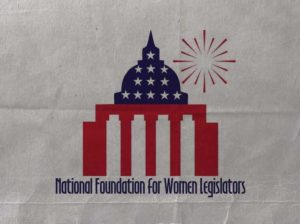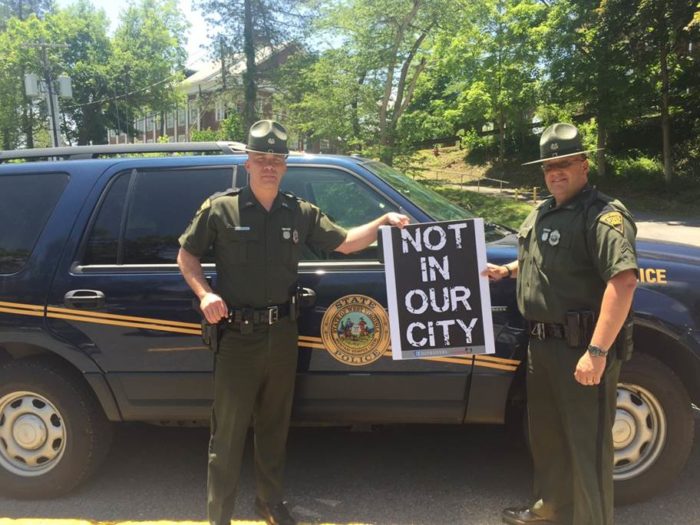On January 27th, Shared Hope launched the Stop the InJuSTice campaign to advocate for state laws that prioritize victim protection and buyer accountability. Since the Protected Innocence Challenge (PIC) commenced in 2011, state action on domestic minor sex trafficking (DMST) has increased exponentially. Shared Hope has worked with over half of the U.S. states to craft, enact, and strengthen bills that address state-specific recommendations made in the Protected Innocence Challenge (PIC) Analysis and Recommendation Reports. The result has been an unceasing increase in state grades, and most importantly, a national trend towards more comprehensive and protective responses for child victims of sex trafficking.
While many states have committed to tackling some of the more nuanced areas of DMST, nationally, we need to reaffirm our vow to addressing the complexities of this violence. 44 states and D.C. have child sex trafficking laws that differentiate between the sex trafficking of adults and children, and have shifted the evidentiary burden accordingly. However, of those 44 states and D.C., only 11 states have included language within their core sex trafficking law that specifically applies to buyers of sex with children. This gap conflicts with the reality of DMST— buyers play a fundamental role in the crime of sex trafficking—without buyers there would be no victims. Failing to recognize the equal role buyers play in creating a marketplace that survives on the sexual abuse, violence, and commercial exploitation of children, also limits which children can be identified as victims of sex trafficking. This limitation directly impacts which children can receive the protection, services, and access to justice that is specifically provided for victims of sex trafficking.
[easy-tweet tweet=”As a nation we need to reaffirm our vow to addressing the complexities of this violence.” hashtags=”StoptheinJuSTice, PIC” url=”http://bit.ly/2kGNljL”]
We are thrilled to announce that, through the Stop the InJuSTice campaign, Shared Hope is currently supporting five states that have introduced legislation this session that, if enacted, would include buyer conduct in the law as a core human trafficking offense:
- Colorado HB 1072 (Sponsor: Representative Lawrence)
- Connecticut HB 6632 (Sponsor: Representative Kokoruda)
- Georgia HB 341 (Sponsor: Representative Reeves)
- Nebraska LB 289 (Sponsor: Senator Pansing Brooks)
- Oklahoma HB 1832 (Sponsor: Representative Osborn)
[easy-tweet tweet=”Shared Hope is currently supporting bills in 5 states that would clarify that buyers are trafficking offenders.” url=”http://bit.ly/2kGNljL “]
We need your help to ensure these bills pass! You can support these bills, and many more, at our Stop the InJuSTice campaign site. Simply go to the site, find your state on our interactive action map, and take one of these actions:
- Call your legislator with our call script.
- Share our social media posts about your state legislation.
Together we can ensure that buyers of sex with children are culpable offenders under your state’s human trafficking offense!
 Today at the annual conference for the National Foundation of Women Legislators the members passed an important resolution on child sex trafficking. Shared Hope International has worked with NFWL to craft a resolution that addresses the key issues currently confronting legislators responding to child sex trafficking victims.
Today at the annual conference for the National Foundation of Women Legislators the members passed an important resolution on child sex trafficking. Shared Hope International has worked with NFWL to craft a resolution that addresses the key issues currently confronting legislators responding to child sex trafficking victims. As I began encouraging citizens and legislators to ask for stronger laws to protect their children, I have been honored to work with advocates and everyday citizens to educate West Virginians about the topic and ways that they can take action. In a recent visit, I spoke to a roller derby group about warning signs of trafficking while they are on the road traveling to competitions, worked with a women’s organization to hold a community screening of our prevention film Chosen, and was a guest on a radio show to talk about how West Virginia can strengthen its laws.
As I began encouraging citizens and legislators to ask for stronger laws to protect their children, I have been honored to work with advocates and everyday citizens to educate West Virginians about the topic and ways that they can take action. In a recent visit, I spoke to a roller derby group about warning signs of trafficking while they are on the road traveling to competitions, worked with a women’s organization to hold a community screening of our prevention film Chosen, and was a guest on a radio show to talk about how West Virginia can strengthen its laws.





